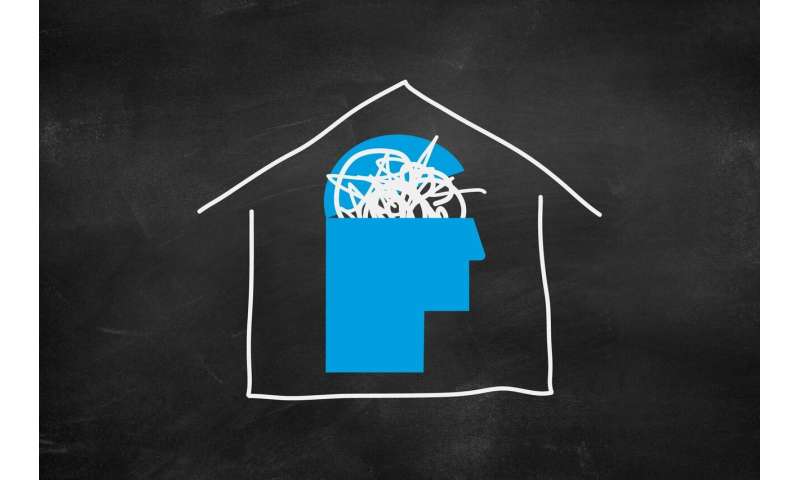How to protect your mental health during a quarantine

As the number of coronavirus infections continues to rise, the likelihood more people will need to self-quarantine or self-isolate is becoming evident.
18 mar 2020--The Centers for Disease Control and Prevention recommends people self-quarantine if they are concerned they may become ill following possible exposure. Those who are actually sick with COVID-19, the new strain of coronavirus, should self-isolate, so as not to spread the disease to cohabitators. The recommended time period for both conditions is 14 days.
Claudia W. Allen is the director of the Family Stress Clinic and the director of behavioral science in the Department of Family Medicine at the University of Virginia's School of Medicine. She is also a licensed clinical psychologist.
"We're all worrying about whether we have enough food, toilet paper and medications to stay comfortable in a quarantine, but one of the biggest challenges of quarantine will be to our mental health," she said.
"While telecommuting initially sounds like an unplanned vacation, in reality, isolation, lack of schedule and not enough to do are a foolproof recipe for depression. Luckily, the scientific literature on wellness and mood informs us what will help us avoid depression (and thrive) if stuck at home," she said.
To battle the possible dip in mood, whether in self-quarantine or self-isolation, Allen offers these suggestions.
Get Dressed
First, don't give in to the immediate urge to sleep in and stay up late. Set your alarm for your usual time and stick with your morning routine. Shower, eat what you normally would, make the bed, etc. You can skip the work uniform and dress down, but do get dressed—don't stay in pajamas.
If Telecommuting, Stick with Your Routine
Be proactive and lay out an intentional structure for your day. If you're telecommuting, stick with your usual worktimes or something similar. If you're not working, create a schedule of mealtimes, reading time, phone time, exercise, chores, etc. Write it down. Even if you have very few obligations, it will help you stay balanced to have different activities you regularly do at relatively set times. It's ideal to have a mix of things you need to do (pay bills, chores, work, etc.) and things you just like to do. This approach to your day is actually an evidence-based treatment for depression called "behavioral activation" that will also help prevent depression.
Plan Out Your Week
Have a schedule for the week as well. Make weekends somewhat different, even if that means something simple like making a more elaborate breakfast or something more involved like embarking on a project (i.e., painting a room). This combination of structure and variation keeps people settled but stimulated—both important for emotional well-being.
Go Outside
If you're not confined to the house, take daily walks or jogs, preferably in a leafy area. Exercise, sunlight and being around trees all benefit mood. If you're stuck inside, try one of the many workouts that you can follow on the internet.
Quarantine might give you more time to work out than usual. If so, set SMART goals, meaning that they are specific, measurable, achievable, realistic and timely. Make it a challenge to increase your sit-ups, number of workouts a week, etc. Exercise has such a positive effect on mood it is actually a prescribed treatment for mild to moderate depression. Make it a priority on your daily schedule.
Be Intentional
Use any extra time very intentionally; don't drift through the weeks. Pick one or two things you've wanted to learn about or how to do and teach yourself. Plan to come out of this quarantine with a new skill or hobby. Many famous artists and scientists credit the time they spent being sickly children stuck at home with developing their curiosity or love for a subject. Devote one hour of your daily schedule to work on this new skill. If possible, collect any needed materials for this activity ahead of time.
Beware of Too Much Social Media
Use social media wisely. No doubt, social media is your friend when isolated. But resist scrolling through Facebook and Instagram endlessly; that won't really feed your need for connection, but has been shown in some studies to actually make people feel left out or "less than." Instead, use social media to meaningfully connect. Plan weekly (or even daily) group video chats with friends, family, neighbors or colleagues. Social connection is one of the most important drivers of well-being.
Be a Helper
Helping others is a known mood-booster. Be aware of who in your circle might be particularly vulnerable during this time and check on them by phone or email.
Spread Out
Create some space between those cohabitating. People quarantined together run the risk of crowding each other and creating irritation. Normally you're together some of the time, but separated at other times. Mimic this at home by intentionally planning "together time" (meals, watching movies) and "separate time" in separate rooms, if possible (working, reading, learning). Even if you're quarantined in just one room, plan agreed times when you're not interacting, as if you were not all in the same room.
Shift Your Mental Space
Finally, use principles of mindfulness to shift your mental stance from frustration about the situation to curiosity. Take on the mindset of an anthropologist or journalist observing a social experiment. Keep a journal (written, sketches, or video) of your experience during quarantine—what you did and how you felt day-by-day. Taking on this stance will give you a little distance, which can reduce distress, as well as keep you open to the positive or simply interesting things that may happen during this very unusual experience.
Provided by University of Virginia
No comments:
Post a Comment